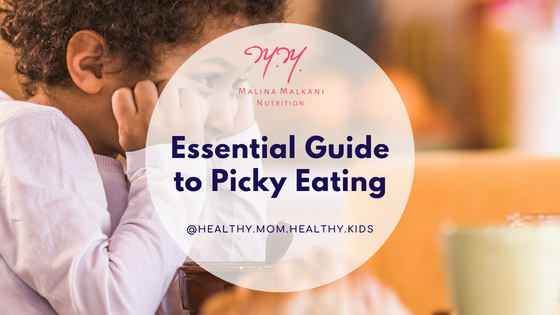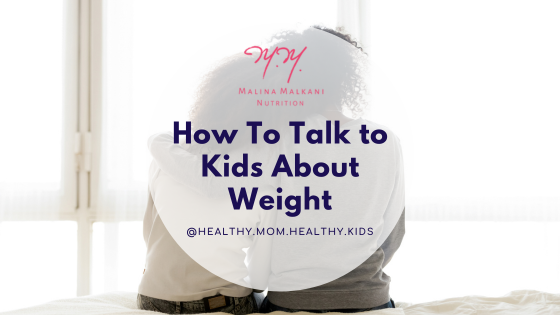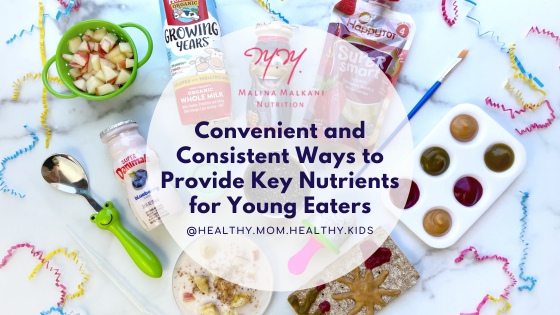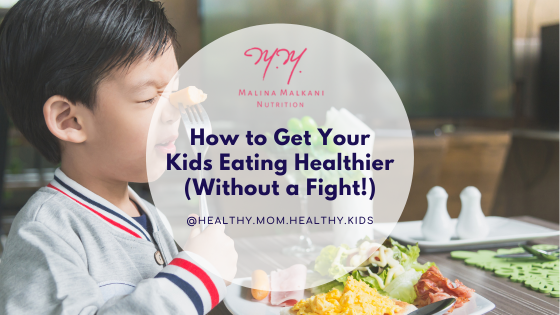Why is my child sneaking food and lying about it?
This blog contains affiliate links, meaning that if you choose to purchase a product through a link, I will receive a small commission - this does not impact the amount you pay. Affiliate links are marked with an asterisk (*).
As a parent, discovering that your child is sneaking food and lying about it can be concerning and confusing. You may wonder where these eating behaviors are coming from, why they are doing this, and how best to address it.
If you discover that your child is sneaking food, it's important to respond with compassion and understanding. Avoid shaming or punishing your child, as this can lead to further issues with food and eating that are harder to unwind. Instead, try to start by addressing the underlying reasons for their behavior and provide support.
In this post, my goal is to explain some common reasons why kids sneak food, help you identify the “why” behind your child’s behavior, and provide tips and guidance on how to respond in a positive, nurturing manner.
First, discover why kids sneak food…
Sneaking food can be a complex issue with underlying emotional and psychological factors. There are several reasons why children may sneak food. It's important to understand that this behavior is often not about the food itself but rather about underlying issues.
Some common reasons that kids sneak food include:
Emotional eating: Children may turn to food for comfort or to cope with stress or other difficult emotions.
Control: Children may hide food as a way to control their food intake or as a response to feeling pressured to eat certain foods.
Shame: Children may eat in secret due to shame or embarrassment about their eating habits and cravings.
Hunger: In some cases, children may sneak food because they are not getting enough to eat at home, either due to lack of access to food, picky eating, financial constraints, restrictive diets, growth spurts, or medications.
Curiosity: Children are naturally curious, and they may want to explore new foods or try foods that they have been told they can't have.
Why is my child sneaking food at night?
Sneaking food or hoarding food at night can be motivated by various factors, and understanding why your child is doing it can help you address the root cause.
Sometimes, sneaking food at night is due to hunger. Your child might not be eating enough during the day or may have an increased appetite due to growth spurts or physical activity. Irregular or inconsistent mealtimes during the day may also lead to increased hunger and nighttime eating.
Some children feel the need for privacy when eating and may feel more comfortable eating away from the scrutiny of others. Often this is caused by shame they may have experienced when eating with others. A child may also be craving specific foods that they feel they can't have during the day.
Eating at night can also be a way for your child to cope with stress, anxiety, sadness, or boredom. Eating can become a way to distract themselves or numb their emotions. Emotional eating can become problematic as a coping mechanism, leading to overeating and potential weight gain.
Why is my ADHD child sneaking food at night or at school?
When a child is taking medications for Attention-Deficit/Hyperactivity Disorder (ADHD), such as stimulants like methylphenidate (e.g., Ritalin, Concerta) and amphetamines (e.g., Adderall, Vyvanse), it can cause a decrease in appetite, especially during the day. This can lead to hunger at bedtime after the medications have worn off.
Children with ADHD may also be more prone to impulsive behavior, including binge eating food. They may also struggle with regulating their emotions, leading them to seek comfort in food.
Children with ADHD may also be seeking sensory stimulation by eating certain foods and may seek out highly palatable foods for immediate gratification. If your child has been restricted from certain foods at home or at school, they may sneak food to avoid getting in trouble or facing consequences.
Why is my child hiding food wrappers?
If you have a child who is hoarding food or sneaking food, hidden empty food wrappers are usually a sign that your child feels guilty or ashamed about their eating habits. It may also be a way for them to hide evidence of their food consumption from others.
The child may feel embarrassed or ashamed about how much they have eaten or about the types of foods they have consumed, especially if they believe these foods are “unhealthy,” “bad,” or not allowed.
A child may also hide food wrappers and lie to avoid getting in trouble or having to explain their eating habits to parents or caregivers. In many cases, hiding food wrappers may be a sign of an unhealthy relationship with food.
Is sneaking food an eating disorder?
Sneaking food itself is not necessarily indicative of an eating disorder, but it can be a behavior associated with disordered eating patterns or other issues. Eating disorders are complex mental health conditions characterized by unhealthy attitudes and behaviors related to food and weight.
Sneaking food may be a sign of emotional eating, where a person eats in response to emotions rather than hunger. It can also be a sign of a strained relationship with food, feeling restricted, or a lack of awareness around healthy eating habits.
In some cases, sneaking food can be a way for individuals to exert control over their food intake, which can be a feature of eating disorders like binge eating disorder or anorexia nervosa.
If you're concerned about your child's eating habits or relationship with food, it's a good idea to consult with a healthcare professional or registered dietitian. They can help assess the situation and provide guidance on how to support your child's overall health and well-being.
Learn how to respond when your kids are sneaking food…
As with any health matter in children, it is important to approach this behavior with empathy and understanding, as sneaking food can be a way for children to express their needs and emotions.
By understanding the reasons behind your child's sneaky eating habits and addressing any underlying issues, you can help them develop healthier eating habits, support a positive body image, and foster a better relationship with food. Here are some tips that can help kids feel more supported, balanced, and in control:
Do not shame your child for sneaking food: Instead, consider the behavior a type of communication your child is using and use it to open up an age-appropriate dialogue. An example could sound like this: “When I see that you have been sneaking food, it tells me that you feel ashamed about eating because you are hiding it. I would imagine that doesn’t feel good to you. Let’s talk about some ways we can help you feel better about eating.”
Establish regular meal and snack times: Provide structured meal and snack times throughout the day to help regulate your child's appetite and reduce the likelihood of nighttime hunger.
Offer balanced meals: Ensure that your child is getting enough nutrients and calories by providing meals and snacks with plenty of protein, fiber, complex carbohydrates, and healthy fats. Provide a variety of nutritious foods for your child to choose from, and role model healthy choices.
Treat Foods: Increase their regular access to sweets, treats, or another food they are fixating on. Try offering dessert with their meals instead of afterward to help neutralize a focus on dessert and give them a greater sense of control.
Encourage mindful eating: Teach your child to listen to their body's hunger and fullness cues and to eat with awareness and enjoyment.
Encourage open communication: Have an open and honest conversation with your child about their eating habits and any underlying issues they may be facing. Create a supportive environment where your child feels comfortable talking about their feelings and emotions.
Address underlying issues: If your child is eating due to emotional reasons, for example feeling angry, anxious, or depressed, consider seeking support from a mental health professional to help them develop healthier coping mechanisms.
Make a plan: Consider making a plan with your child for what to do if they do feel hungry and what foods are appropriate. Try to keep tempting snacks out of reach during nighttime hours, and make sure to remind your child to brush their teeth afterward if they decide to eat a snack at bedtime!
What should I offer if my child is hungry between meals or at bedtime?
If you’re fresh out of ideas for snack foods for your kids, here are a few homemade, nutritious, protein-rich snack foods to consider if your child feels hungry between meal times or before bed:
Yogurt and fruit combo: Instead of high-sugar flavored yogurts, offer plain unsweetened yogurt topped with your child's favorite fruit, either chopped, pureed, or mashed.
Dip and vegetable sticks: Make veggies fun by using kebab sticks to thread chopped fruit and veggies on skewers or food picks for kids*. Add cheese cubes between the veggies for a more filling snack.
Pretzels, crackers, or veggies with dips - Try hummus, guacamole, cashew dip, peanut butter, and nut-free dips made with cannellini beans.
TOP TIP: Batch prep dips and freeze the extra in small containers* so they're ready for veggies, pretzels, whole grain crackers, or pita bread.
Homemade Oat Bars: Look for bars made with whole grains and less added sugar, like these apple oat bars. Add a drizzle of nut or seed butter on top for some added healthy fat, protein, and fiber.
Muffins: Batch-cook lower-sugar fruit and veggie muffins, like these Pumpkin Muffins or Banana Hazelnut Muffins, and freeze. Defrost in the microwave for 30 seconds whenever you need a no-prep snack. Spread with nut or seed butter for more protein and healthy fats.
Energy balls or cookies: Try these No-Bake Chocolate Chip Oat Cookies, which are ready in 10 minutes or less, bursting with health-promoting nutrients like fiber and plant-based protein, and always a hit with kids.
What should I do if my child is craving sweets?
If your child is craving sweets all the time, first ensure that your child is getting balanced meals with plenty of protein, fiber, and healthy fats. This can help stabilize blood sugar levels and reduce cravings.
Sometimes, thirst is mistaken for hunger or cravings. Make sure your child is drinking enough water throughout the day. Aim for at least 6-8 cups of water. You can also help your child identify triggers for their cravings, such as stress or boredom, and find alternative ways to cope with these feelings, such as going for a walk or starting a new art project.
Some families find that it helps to keep artificial or processed sweets and candy more or less out of the home, saving sweets and treats for special occasions and when you are out and about. However this can sometimes lead to more sneaking if a child is feeling restricted. Some families find that increasing access to sweets and treats helps unwind a child’s fixation on sweets and reduces their impulse to sneak food. You may need to try a few different things before you find what works best for your child. This is partly because different people experience certain foods in different ways.
Having healthier options around is one way to offer sweet flavors that are both appealing and very nourishing. I love to make fresh fruit popsicles by adding frozen fruits and a dollop of some unsweetened yogurt or some coconut milk into the blender*, and freezing them into popsicle molds*. This berry, banana, and coconut ringsicle is a favorite!
It is best to pair a fruit or a carbohydrate with a protein or fat to help reduce blood sugar spikes. These Chocolate Black Bean Brownies that are full of nutrient-dense foods like black beans and oats (and are also vegan, gluten-free, nut-free, dairy-free, and flourless), but you would never know they contain so many health-promoting nutrients because they taste so chocolatey and rich.
Sometimes it takes personalized guidance to arrive at a healthier, more balanced place with a child, especially when they are sneaking food. For more information on your child’s nutritional needs or to discuss a specific situation with your child, schedule a virtual consultation with me for one-on-one advice. Please leave a comment below and share it with a friend who may need this info!




















